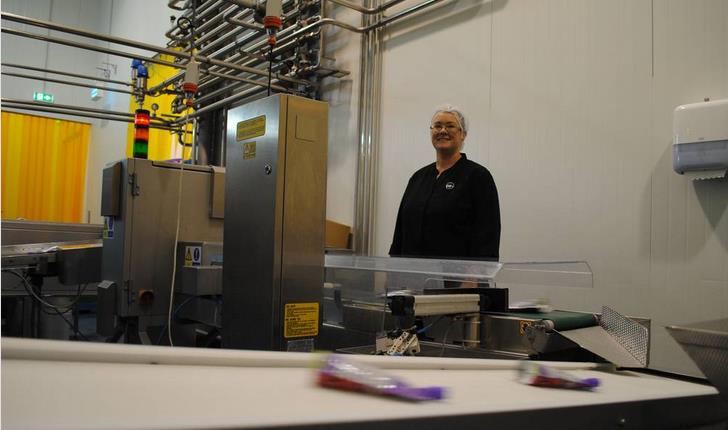 months at local co-manufacturer Port Lincoln Tuna Processors as it expands its product range.
months at local co-manufacturer Port Lincoln Tuna Processors as it expands its product range.The business is already one of Port Lincoln's biggest employers and its workforce of more than 200 people will grow as production increases from about 20 million units a year to 40 million.
General manager Lea Traeger said the company would be looking to employ another 50 to 100 people in a range of jobs from factory hands, industrial cleaners, machine operators and quality assurance to electrical and maintenance.
Mrs Traeger said an established product range was moving production from another facility to Port Lincoln Tuna Processors and volumes would increase quite quickly when the move happened so they were looking to start increasing the workforce as soon as possible.
Apart from increased employment, she said benefits would flow through to the community in other areas like transport as the company increased its freight of products in and out of Port Lincoln.
Mrs Traeger said the business, owned by local fishermen, was proud of its heritage in the tuna industry but a lot had changed over the 40 years since it started canning tuna in 1972.
She said canning was about 5 per cent of the business today and the raw material for that range came to factory already prepackaged ready to be canned.
The majority of the product now manufactured is in a pouch and includes baby food, fruit and vegetable purees, jellies, custard, milkshakes, soup and gravies.
"The entire process occurs on site with raw materials being batched, weighed, mixed, cooked and then filled into the appropriate packaging format," Mrs Traeger said.
The company stopped producing John West canned tuna products in 2010 as production went off shore and Mrs Traeger said this volume increase would help stabilise the company's workforce and its future.
She said the company was battling the same pressures as other manufacturers such as skyrocketing coal and electricity costs, the high Australian dollar and increasing work health and safety requirements, with the added pressures of being based in a regional centre where additional freight costs and sourcing a workforce can be a major hurdle.
However she said the directors had maintained their community focus and managed to overcome these hurdles to keep the business viable without the government assistance some other manufacturers had received.
Despite the move away from tuna canning the local tuna industry is still a big part of the company's history, with a large picture of fishermen poling tuna taking pride of place on the wall in one of the factories.
"It's part of keeping our eye on the past, respecting where we've come from," quality assurance manager Erin Robertson said.







